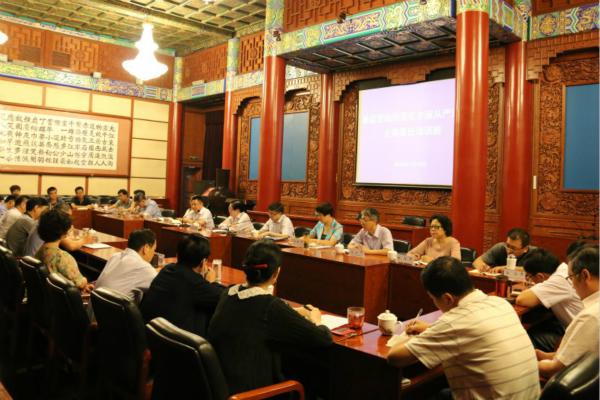The Ethnic and Religious Affairs Commission of Jiangsu Province claimed that in order to obtain the license for religious information service, the first exam for Internet religious information examiners in Jiangsu Province is initially scheduled to be held in Nanjing in mid-March, 2022.
According to the WeChat official account of "Jiangsu Ethnic Religions", on March 1st, Monday, or the day before the implementation of the Administrative Measures for Internet Religious Information Services, the Ethnic and Religious Affairs Commission of Jiangsu Province issued a notice on the license of Internet religious information service in Jiangsu Province, and began to accept applications for the license in the whole province from March 1st.
The notice said, "The subject applying for the Internet Religious Information Service License must have at least one full-time religious information examiner. The religious information examiner shall meet the following requirements: (1) Familiar with religious policies and regulations and related religious knowledge, and have passed the exam for Internet religious information examiner exam. (2) Having the physical conditions to undertake the examination task. (3) Not serving as the religious information examiner of other operators."
"The exam for Internet religious information examiner is organized by the Ethnic and Religious Affairs Commission of Jiangsu Province. The exam does not specify textbooks or accessory books, nor does it entrust any unit or individual to carry out pre-exam training. The exam is in the form of a closed-book examination, with a full score of 100, and a qualified score of 80 or above. The exam content covers but is not limited to the study scope listed in this notice. Part of the learning content can be downloaded from the 'Download Zone' of the website for the Ethnic and Religious Affairs Commission of Jiangsu Province," the document added.
"The first exam for Internet religious information examiners in our province is initially scheduled to be held in Nanjing in mid-March, 2022 ... The commission will issue an exam notice in due course to inform the registration method, the time and place of the exam, etc."
The applicant must submit the application materials online and offline simultaneously.
Meanwhile, it stipulates the scope of religious policies, regulations, and related religious knowledge for the Internet religious information examiners in Jiangsu Province, including Xi Jinping's thought of socialism with Chinese characteristics in the new era, Xi Jinping's thought of rule of law, socialist core values, and General Secretary Xi Jinping's important exposition on religious work, etc.
The learning content also includes laws and regulations related to religious affairs. They are listed as follows: The revised Regulations on Religious Affairs, the Regulations on Religious Affairs of Jiangsu Province, the Regulations on the Administration of Religious Activities of Foreigners in the People's Republic of China, the Detailed Rules for the Implementation of Regulations on the Administration of Religious Activities of Foreigners in the People's Republic of China, the Measures for the Administration of Internet Religious Information Services, the Measures for the Approval and Registration of the Establishment of Religious Activities Places, the Measures for the Financial Supervision and Administration of Religious Activities Places (Trial), the Decision of the National Religious Affairs Administration on Revising the Detailed Rules for the Implementation of the Regulations on the Administration of Religious Activities of Foreigners in the People's Republic of China, the Measures for Teachers Qualification, the Professional Title Evaluation and Appointment in Religious Colleges and Universities (Trial), the Measures for the Degree Granting of Religious Colleges and Universities, the Measures for the Administration of Religious Faculty, the Measures for the Administration of Religious Groups, the Measures for the Administration of Religious Colleges and Universities, and other management measures related to Tibetan Buddhism and Islam.
The religious knowledge involves the basic knowledge of Chinese Buddhism, Taoism, Islam, Catholicism, and Christianity.
Other relevant knowledge includes the Constitution, the Civil Code, the National Flag Law, the National Anthem Law, the National Emblem Law, the Anti-terrorism Law, the National Security Law, the Cyber Security Law, the Personal Information Protection Law, and other laws and regulations.
- Translated by Oliver Zuo











